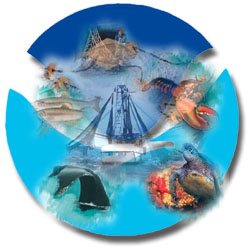
|
|||||||
SEARCH GOVERNMENT SITES at USA.GOV
NOAA Privacy Policy | NOAA Disclaimer | NOAA FOIA | NOAA Information Quality | NOAA Strategic Plan
DOC Privacy Policy | DOC FOIA | DOC Information Quality | Fair Act | ESR System | No FEAR Act | White House
Updated: January 21, 2009 1:56 PM7 9:41 AM
